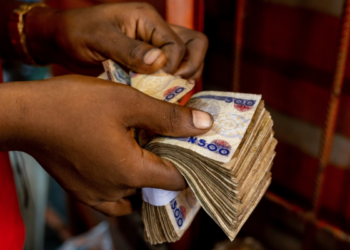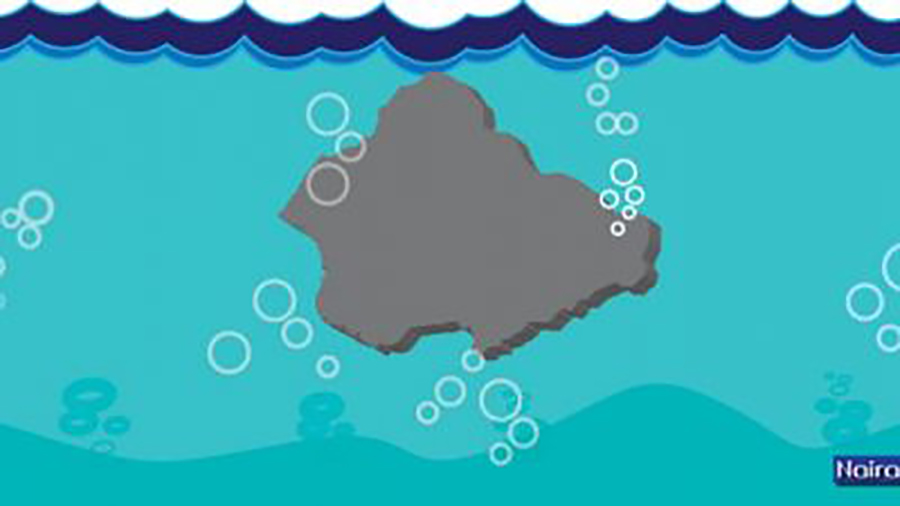Recent data released by the Ministry of Finance, Budget and National Planning reveal that Nigeria’s debt service cost surpassed its revenue in the first four months of the year. Notably, debt service gulped a sum of N1.94 trillion between January and April 2022, against a retained revenue of N1.63 trillion.
This is contained in the 2023 – 2025 MTFF/FSP report, presented by the Minister of Finance, Dr. Zainab Shamsuna Ahmed.
According to the report, as of April 2022, a sum of N1.63 trillion was earned as the federal government retained revenue, accounting for 49% of the prorated target of N3.32 trillion. This is significantly lower than the projected revenue of N9.97 trillion for the entire year.
The FGN share of oil revenues was N285.38 billion (representing 39% performance), while non-oil tax revenues totalled N632.56 billion – a performance of 84%. CIT and VAT collections were N298.83 billion and N102.97 billion, representing 99% and 98% of their respective targets.
Meanwhile, a total of N4.72 trillion has been spent between January and April 2022 by the federal government, from the N17.32 trillion earmarked for the year. While N1.94 trillion was spent on debt service, N1.26 trillion was spent on personnel costs, including pensions. Also, N773.63 billion has been spent on capital expenditure during the period.
Nigeria’s government revenue has been constrained in recent times by the underperformance of oil revenue due to the continuous decline in production capacity caused by crude oil theft, pipeline vandalism amongst other factors.
In the four months period under review, a sum of N285.38 billion was earned as oil revenue by the federal government, representing a 60.9% shortfall compared to N730.12 billion prorated figure. Despite the rally in crude oil prices in the first half of the year, Nigeria was unable to increase its oil revenue as a result of a continuous decline in production capacity.
What they are saying
According to the Minister, Dr. Zainab Ahmed, the inability to increase crude oil production, as well as subsidy deductions, posed significant challenges to Nigeria’s revenue generation.
“Crude oil production challenges and PMS subsidy deductions by NNPC constitute significant threat to the achievement of our revenue growth targets, as seen in the 2022 Performance up to April,” she said.
“Revenue generation remains the major fiscal constraint of the Federation. The systemic resource mobilization problem has been compounded by recent economic recessions. Bold, decisive and urgent action is urgently required to address revenue underperformance and expenditure efficiency at national & sub-national levels,” she added.
Back story
- Recall, that Nairametrics reported that debt service gulped 96% of Nigeria’s revenue in 2021, which was the worst on record as of then. However, recent numbers now show that Nigeria’s revenue is no longer enough to fund its debt service obligations, thereby, exposing the country to further loans.
- In 2021, Nigeria’s Federal government spent a sum of N4.22 trillion on debt servicing, increasing by 29.3% compared to N3.27 trillion spent in the previous year, while revenue for the period only increased marginally by 9.3% to N4.39 trillion.
- Compared to the previous year, Nigeria’s debt service-to-revenue ratio increased from 81.1% in 2020 to 96% in the year under review. Meanwhile, Nigeria’s total debt stock rose to $100.07 billion in Q1 2022 from $95.78 billion recorded in the previous quarter. This suggests a further increase in debt service costs, while revenue remains low.























We are in this mess because this current Government nepotism get us to where we are now, putting round pegs in square hole. Buhari regime failed in all sectors, the truth must be told.
How can debt repayments be more than available revenue?
Diversification of our economy becomes very necessary at this point. Also all the leakages where the country has been loosing revenue need to be tightened. effective digitalization of all the government revenue collection, cutting down cost of governance, discouragement of medical tourism by fixing our hospitals, fixing our educational system will go a long way in making our economy stronger, attract foreign investment and above all security, stable electric supply and ease of doing business is a must for this trend we are experiencing to change.
Things will get worse as production is not taking place in agriculture. The insurgents and bandits have taken over the forests, and farmers cannot go to the farm. Food prices will keep going up, and the Naira / Dollar price will keep hitting the roof. The President does not realise that handing the security of this country to one section of the country will compromise it. He refuses to approve state police and run true federalism, and the situation keeps deteriorating. The Niger Delta sends a message through pipeline vandalisation and oil theft. You cannot depend on the natural resource of one section of the country to run the country while the other section of the country is free to exploit its resources. As long as the President refuses to address the burning issues, the country will keep going down.